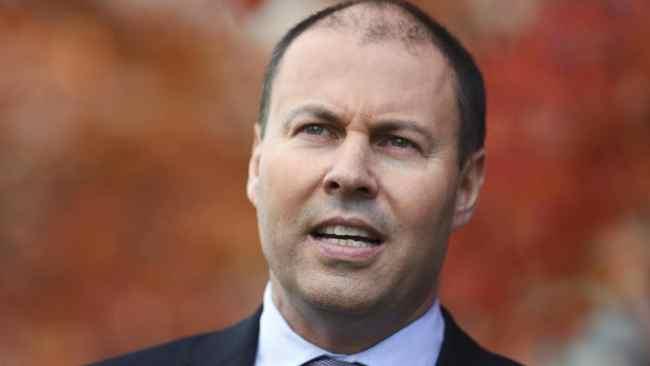Menzies recipe ideal for shaping Liberal policies

Josh Frydenberg is the new Deputy Leader of the Liberal Party. This is an edited excerpt from his essay in The Forgotten People, Updated: Liberal Essays on Modern Australia.
In 1942, then High Court Justice Sir Owen Dixon was appointed Australia’s minister to the US. The times were grave and complex. They required, as Bob Menzies would later remark in The Forgotten People, a person with “flexibility of mind, constructive capacity and marked judgment”.
Menzies’ insight more than 70 years ago into the key characteristics required to deal with matters affecting Australia’s future are true today. There may not be the prospect of troops massing at our border or an imminent threat of totalitarianism on the march, but we do face significant challenges that, if inadequately met, could undermine our way of life. We need people in public office who reflect the qualities Menzies so aptly described — integrity, capacity, judgment and vision.
Integrity requires principles and values that are constant and the ability to determine right from wrong. Just as no political party has a monopoly on compassion, there are people of integrity who can be found on both sides of the political divide. Integrity is best measured not by what someone says but by what they do.
Our leaders also need to be capable. As Dixon’s appointment demonstrated, what qualified him for office was the scope of his ability and the nature of his personal attributes, not the direct experience he may have acquired in a particular line of endeavour.
Today, the challenges of public policy are so fast moving that adaptability and lateral thinking are key. One of the consequences of the digital revolution is that the traditional models of social and economic interaction are being disrupted. This requires minds that engage openly and responsibly. We should include more people in parliament, the bureaucracy and public life who have experience of taking decisions with consequences. One should never underestimate the importance of wisdom born of experience. History demonstrates this.
A third quality fundamental to sound leadership in public office is judgment, an elusive quality that is hard to define, but is obvious when it’s absent. Judgment is all about understanding the environment in which one operates, the prospect of success, the consequences of failure and the people with whom you interact and ultimately need to take with you.
Judgment requires both a short and longer-term view. This is a real challenge in today’s world where methods, techniques, and outcomes become redundant much more rapidly.
A final quality is vision. A sense of inspiring a community with a direction in which to go. It’s a short word with a big meaning and often invoked as an outcome in itself. This is a misuse of the term. An effective vision is one that addresses the legitimate interests of people with different needs and, over time, generates a broad consensus that its implementation will move the nation in the right direction. It provides an intellectually satisfactory framework for decision-making at all stages.
For a Liberal, the fundamental leadership framework puts at its core the freedom of the individual and their enterprise. It seeks to create a society that protects its weak and affords dignity to those who cannot provide for themselves. This is the Liberal way. It enshrines equality of opportunity and generally disdains the suppressing socialist notion of equality of outcomes.
The Liberal view of a virtuous state contrasts with the view that a better society is one that seeks as its primary objective to render all people equal through the instruments of the state. Today, we hear calls from the left for democratic capitalism to be reshaped, be it by political leaders such as Jeremy Corbyn or academics like Thomas Piketty. Crises like the GFC have been used by the left as an occasion to overexpand the role the government. Here, under the apparent guise of creating a “fairer society”, our political opponents are seeking to provide unearned redistribution of capital without recognising the implications for national wellbeing.
Understandably, everyone wants more, but this can only be achieved through economic growth, productivity gains and the maintenance of competition, not through virtue signalling and an assertion of moral superiority. The diminution of incentives to invest and grow, the imposition of barriers to an open economy and the creation of super-sized unions with power over vertically integrated supply chains is antithetical to this objective.
These policies, in the context of a union and political culture that seeks to prescribe a moral basis to justify flagrant breaches of the law, is an ominous threat to the prosperity, order and security of the nation as a whole. It is in this environment that it is incumbent on Liberals to constantly make the case that prosperity and a good, decent and fair society emerge from the application of its principles. Prosperity that Liberalism brings is both an economic and moral imperative.
As Australia’s most successful political leader, Menzies combined the science of good policymaking with the political art of persuasion and implementation. A key to his success was his understanding of the quality and nature of leadership. His prescription of what Dixon brought to the role in Washington is a worthy guide for us today. Integrity, capacity, judgment and vision are the attributes we need in public life to drive forward as a nation.


